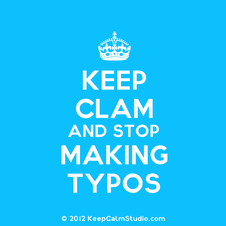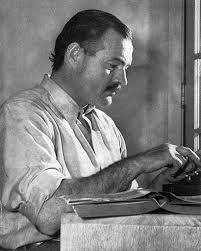For me, the holiday marks rebirth in every sense of the word, so much so that I have recently adopted the celebration as the marker for the beginning of a new year, much the way the Church marks Easter as the alpha and omega of its own liturgical calendar. This has rendered the first of January obsolete for me. So much so that I no longer even use New Year's Eve as an excuse to consume an excessive amount of adult beverages. No, I let the calendar year come and go without much fanfare. In my own personal little world, the new year begins a few months later.
|
Easter is the most profound holiday, in my opinion. For Christians, Catholics especially, it is the most important and sublime holiday of the year. Ancient pagans used the time to celebrate fertility and regeneration. For the non-religious today, it is a time of seasonal change, an emergence from darkness winter into the brightness of spring.
For me, the holiday marks rebirth in every sense of the word, so much so that I have recently adopted the celebration as the marker for the beginning of a new year, much the way the Church marks Easter as the alpha and omega of its own liturgical calendar. This has rendered the first of January obsolete for me. So much so that I no longer even use New Year's Eve as an excuse to consume an excessive amount of adult beverages. No, I let the calendar year come and go without much fanfare. In my own personal little world, the new year begins a few months later.
0 Comments
 Nothing irritates me more than typos. When it comes to others making them, I am quite forgiving; however, when it comes to my own work, typos drive me insane. Typos are frustrating because I am utterly blind to most of them. I simply do not see them in the text because I am reading what is in my head rather than what is on the page. This is especially true of longer pieces or projects on which I spend an enormous amount of time. After I finished what I believed at the time to be the final draft of The City of Earthly Desire, I was horrified at the amount of typos and errors early readers noticed - typos and errors which I did not see at all. I have completed several revisions of the novel since then, carving away the typos and errors bit-by-bit. The current text of the novel is much cleaner than the first I placed on the market nearly two years ago, but as I am completing what I hope will be my final proofread of the novel I am noticing something rather troubling within the text. In my seemingly never-ending quest to root out typos, I am, in some instances, creating and planting more typos. This happens most frequently in the cut-and-paste parts of my corrections where I accidentally cut out an article or pronoun or paste an extra article or pronoun in the text without noticing. This results in sentences like: "but he accepted it as part of of some cleansing process . . ." "He left town for a few days, but he'll back" These are not huge errors, but they do affect the flow of the prose and there are many errors like the ones above in the text. This bothers me immensely. If I ever get around to writing another novel, I'm going to seriously consider asking for help from a dozen beta-readers and hiring the services of a professional typist to put together the final draft. I truly believe it would be money well spent.  "How did you go bankrupt?" Bill asked. "Two ways," Mike said. "Gradually and then suddenly." I have been mulling over this little gem from Hemingway's The Sun Also Rises for the better part of two days now. Humorous and ironic, the profundity of Mike's sullen description of how he lost his money lies in the realization that gradually, then suddenly is not just a clever quip, but a recognizable pattern of life that can be extended to any aspect of human existence. Take your health, for example. Imagine you are out-of-shape and begin an intense exercise regimen in an effort to get fit. During the first week all you feel is pain, but slowly and gradually your fitness level improves until one fine morning - ta-dah! You are suddenly in shape! Writing follows a similar pattern, in my opinion. You type and type and type and revise and rethink and rip up and throw out and rewrite and then one day you suddenly realize you are finished. The idea can also be applied to success. Though instant success happens, it is rare and dangerous. The more common path to success also follows the gradually then suddenly pattern. Of course, gradually then suddenly is not always positive, as Mike so gloomily reveals when describing his state of financial misfortune. Going back to the example of health. If you are in shape and stop exercising and taking care of yourself, you gradually, then very suddenly realize you are no longer fit. In writing, if you no longer imagine, write, and create, you gradually, then very suddenly stop being a writer. In terms of success, I have noticed that my novel is gradually catching the attention of more readers. More ratings and reviews are popping up on Goodreads and Amazon. Whether or not this gradual increase in interest and awareness will translate into anything in the suddenly portion of the equation described above remains to be seen. Regardless, it is nice to see a few more people take notice of the novel.  I am not a political pundit. Of contemporary elections, democracies and campaigns, I am most certainly not an aficionado. More often than not, I literally do not care who wins or loses any given election. Having said this, I freely admit I watched the recent election in Hungary with keen interest. Overall, I am pleased with the way it turned out. I am satisfied that Orbán won, but that satisfaction does not rival the absolute pleasure I experienced by witnessing the crushing and humiliating defeat Hungarian voters handed the pathetically cobbled-together coalition of left-wing parties whose only fundamental objective was to rid Magyarország of Orbán. I imagine the leaders of the Unity Party (or whatever they called themselves) are currently sitting in dark rooms somewhere in Budapest, sipping palinka, licking their wounds, and wondering how they managed to suffer a defeat of such epic proportions yet again. What happened? They were destined to win! After all, they had Ron Werber in their corner! And Orbán, they surmised, had done so much to isolate and alienate Hungary from the globalized international community that it would be no great chore to unseat him from the throne of power. But none of that made any difference. What was it then? What was it that made the Left such an unappealing choice for most Magyars? I offer the following theory for consideration. The Left's fatal flaw was its inability to discern the difference between attacking Orbán and attacking Hungary itself. For over four years, left-wingers in Hungary, with the eager help of their international sympathizers and supporters across the globe, have waged a vitriolic public war against Fidesz. Within the framework of democracy there is essentially nothing wrong with that; however, the Left's noxious criticism often overflowed the dykes of political partisanship and flooded into the plains of the country itself. Rather than keep their malice aimed solely at their political and ideological opponents, the Hungarian leftists liberally criticized the very fabric of the nation they hoped to one day represent. To put it bluntly, the Left in Hungary revealed themselves to be, above all else, anti-Magyar. They carelessly and arrogantly wrote articles and diatribes denouncing Hungary to the world. They gave bitter interviews, mostly for magazines and newspapers in the West, in which they not only condemned their political foes, but the country their political foes had been democratically elected to represent. When they ran out of ammunition or ideas in their relentless rebukes of all things Magyar, they enlisted the help of foreign friends and disgruntled expats to continue the work of vilifying Hungary for them. Hungarians, regardless of their ranking on some stupid and meaningless world happiness report, do not take kindly to people denigrating their country and have shown they have no interest in electing anyone whose main political platform amounts to little more than espousing national shame and national self-hatred. Who would? Can you imagine the American people electing a candidate whose entire platform was built upon incessant and malicious criticism of the United States of America? Not just the current state of the country, but of everything that makes it what it is? Its founding, its constitution, its economy, its history, its customs, its faith, its values? Yet this is exactly what the parties that made up that unholy alliance known as Unity did for the better part of four years in Hungary. When they were not doing it themselves, they made sure to line up squarely behind those who were. Despite all of this, they honestly believed they stood a chance at being elected. It's beyond tragic-comical. I will even go as far as to claim that the Left's political attitudes are at least partially responsible for the rabid ultra-nationalism epitomized by Jobbik. Much of the rhetoric of the far-Right is nothing more than a reaction to the acerbic platitudes of the Left. With any luck, this latest defeat of the Left will translate into something perpetual in Magyar politics. Perhaps the absence of constant anti-Magyar rhetoric from the Left will help quell the rising reactive tide of narrow minded pro-Magyar rhetoric on the Right. One can only hope. Over the past few days I have contemplating symbols and ages. I have been thinking about certain periods of history and ruminating over which symbol or collection of symbols would best represent or epitomize an historical event or time.
Take the French Revolution, for example. Which would be the more apt symbol? The Declaration of the Rights of Man and the Citizen or the guillotine? It did not take me long to choose. After I made my decision, I realized my choice uncovered much more than my standpoint concerning the historical event; my choice of symbol ultimately revealed my sensibilities, my beliefs, and my outlook, not just about the French Revolution, but of life in general. I quickly understood that my choice of symbol would inevitably be challenged by those who had chosen the other symbol to represent the French Revolution. Their choice would also reveal much their standpoint, their sensibilities, their beliefs, and their outlook. Disagreement, scorn, and general unpleasantness would surely follow. Luckily, there will be no such ideological squabbling over the symbol I propose to affix to our own age. I am sure all will agree that the attributes and characteristics of my proposed symbol reach a level of sublime transcendence. All will recognize the inherent truth in the representation - albeit for differing reasons - and, once they see it, I am certain everyone will experience an epiphany of Aristotelian grandeur and find themselves uttering, "Ah, that is it." So, what is the definitive symbol of our age? Ladies and gentleman, I humbly submit my entry . . . . The Selfie |
Blog and Comments
Blog posts tend to be spontaneous, unpolished, first draft entries ranging from the insightful and periodically profound to the poorly-argued and occasionally disparaging. Comments are welcome but moderated. Please use your name or a pseudonym in comments. Emails welcome: f er en c ber g er (at) h otm ail (dot) co m Blogs/Sites I Read
Bruce Charlton's Notions Meeting the Masters From The Narrow Desert Synlogos ✞ Aggregator New World Island New World Island YouTube Steeple Tea Adam Piggott Fourth Gospel Blog The Orthosphere Junior Ganymede Trees and Triads nicholasberdyaev Archives
July 2024
|




 RSS Feed
RSS Feed

